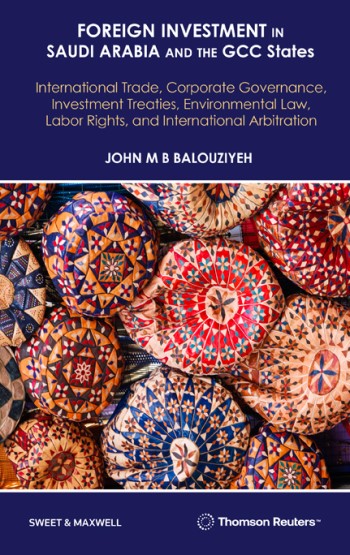
The GCC states — Saudi Arabia, Bahrain, Kuwait, Oman, Qatar and the United Arab Emirates — have become centers of gravity for foreign investment in recent years. While promoting economic transformation and diversification, the GCC states have embarked on a range of projects in the infrastructure, transportation, urban planning and renewable energy sectors, backed by funding from extensive reserves of natural resources.
While opportunities for investment in the GCC region abound, navigating the regulatory framework governing investment can be riddled with uncertainty and risk. These challenges highlight the need for a clear guide that walks foreign investors and their legal counsel through the GCC’s regulatory landscape.
The present volume fulfils this need. It is an authoritative handbook that expounds the legislative framework for foreign investment in the GCC states, while illustrating how Islamic law interacts with legislation. This vade mecum covers bilateral and multilateral investment treaties, international arbitration, trade and investment framework agreements, regional dispute settlement tribunals and legislation governing business organizations, agencies, capital markets, government procurement and taxation, while highlighting emerging topics in foreign investment, including environmental law, sanctions, labor rights, renewable energy and human rights.